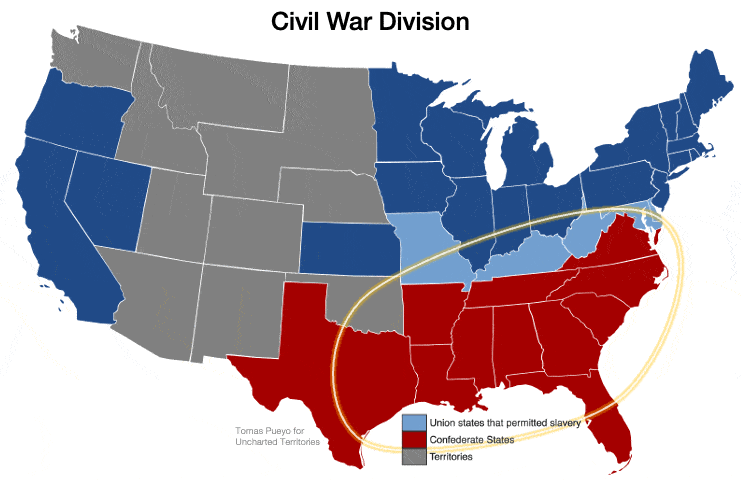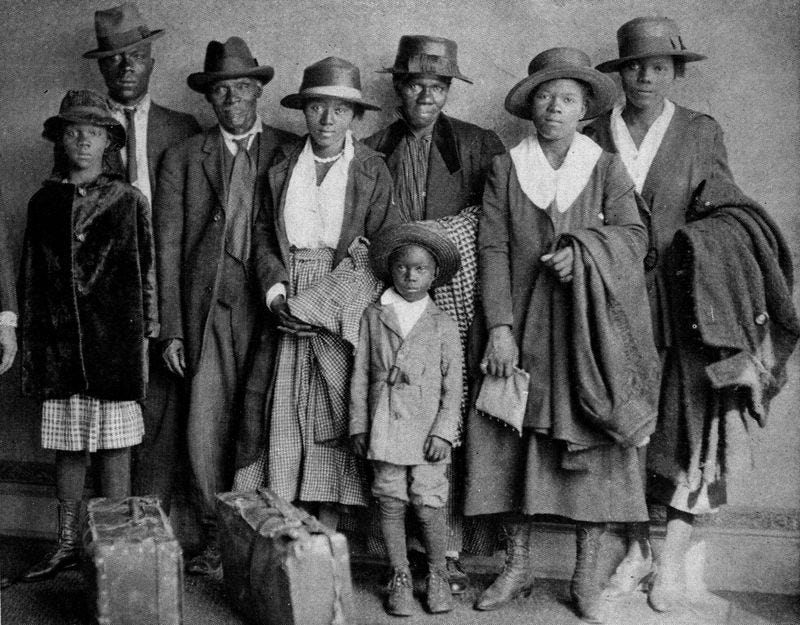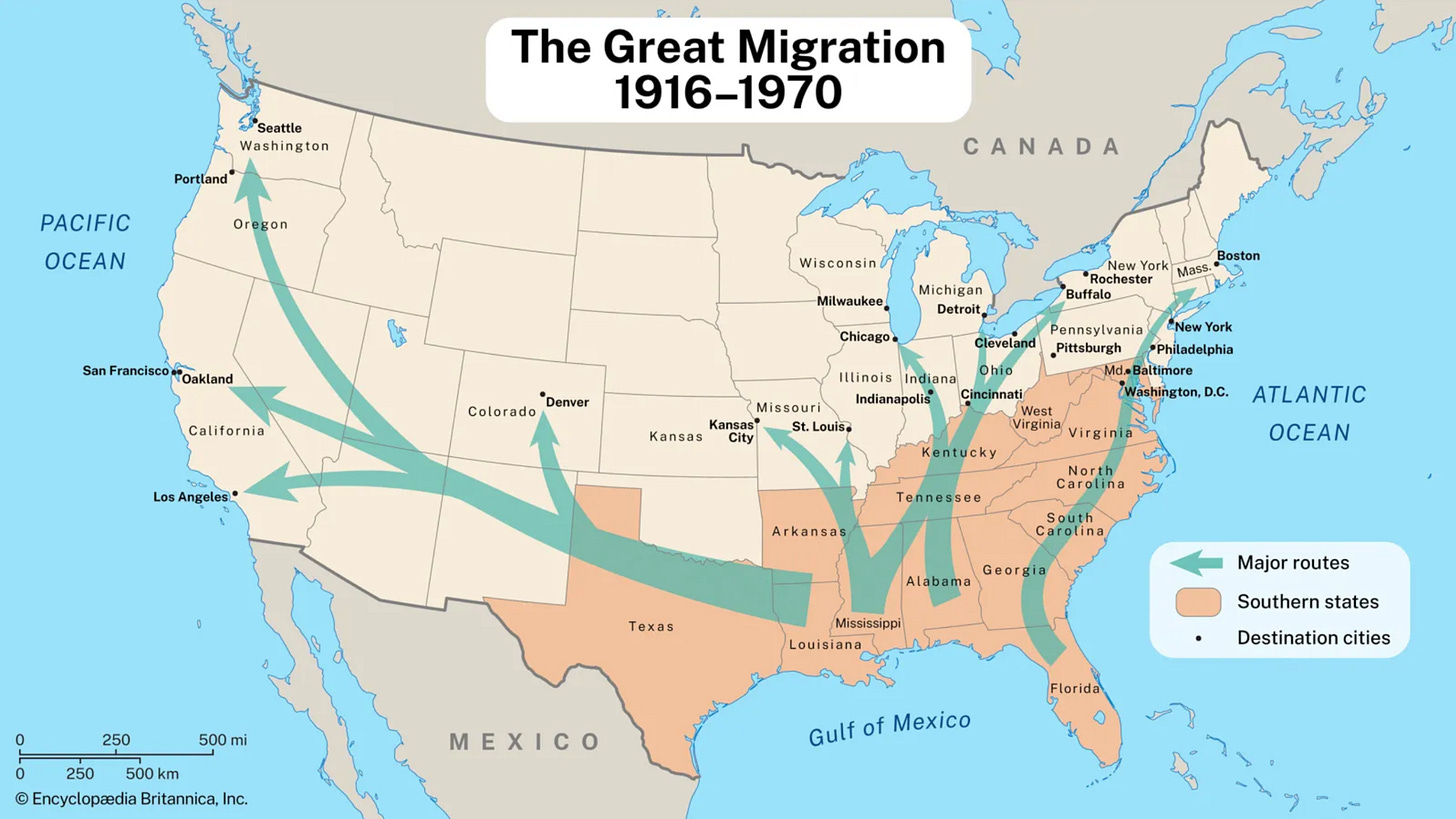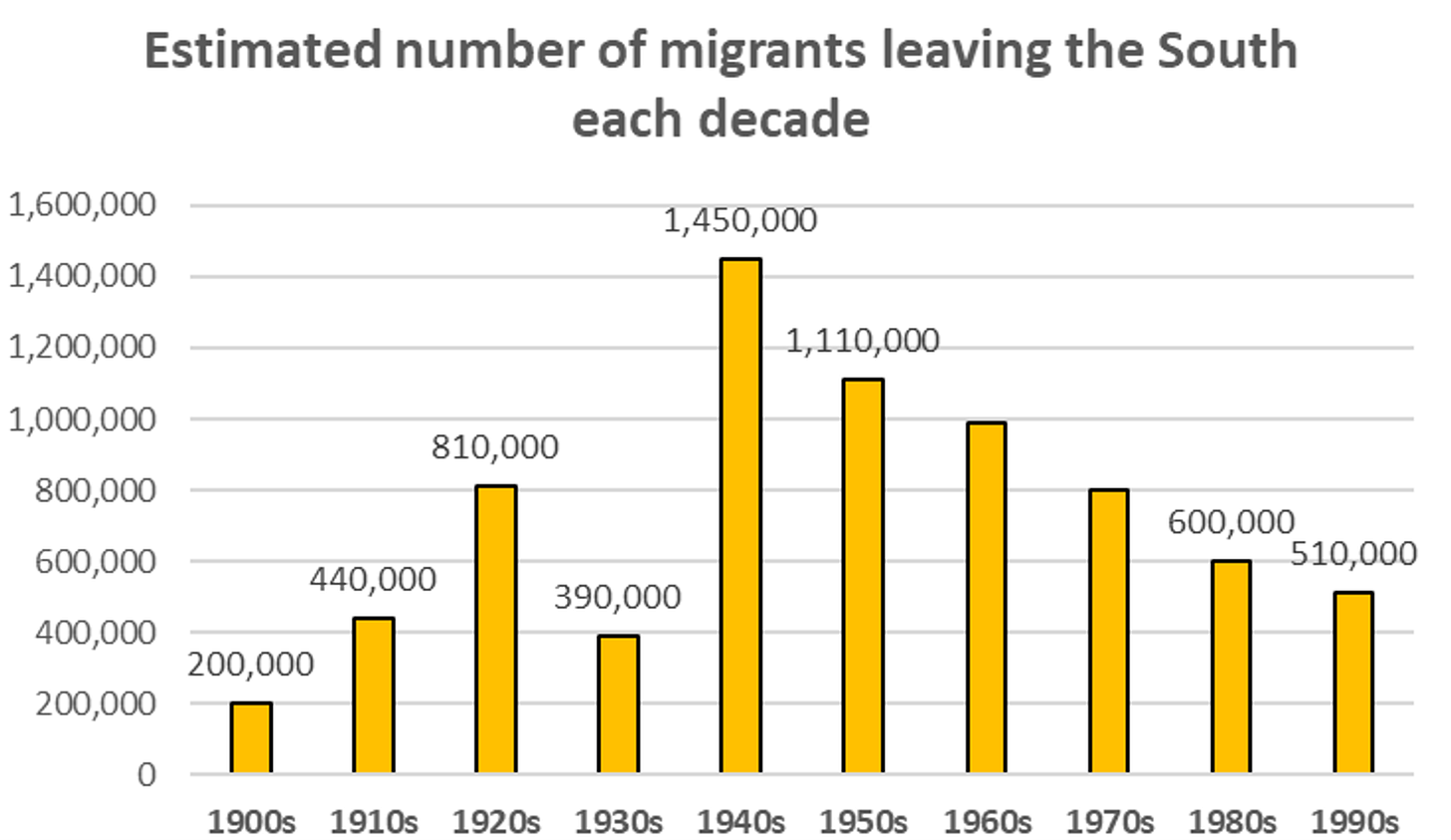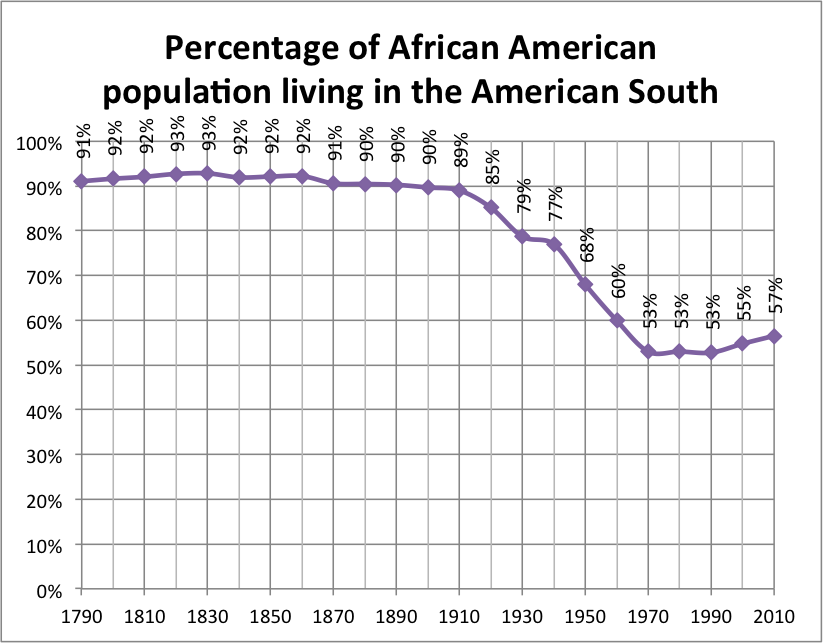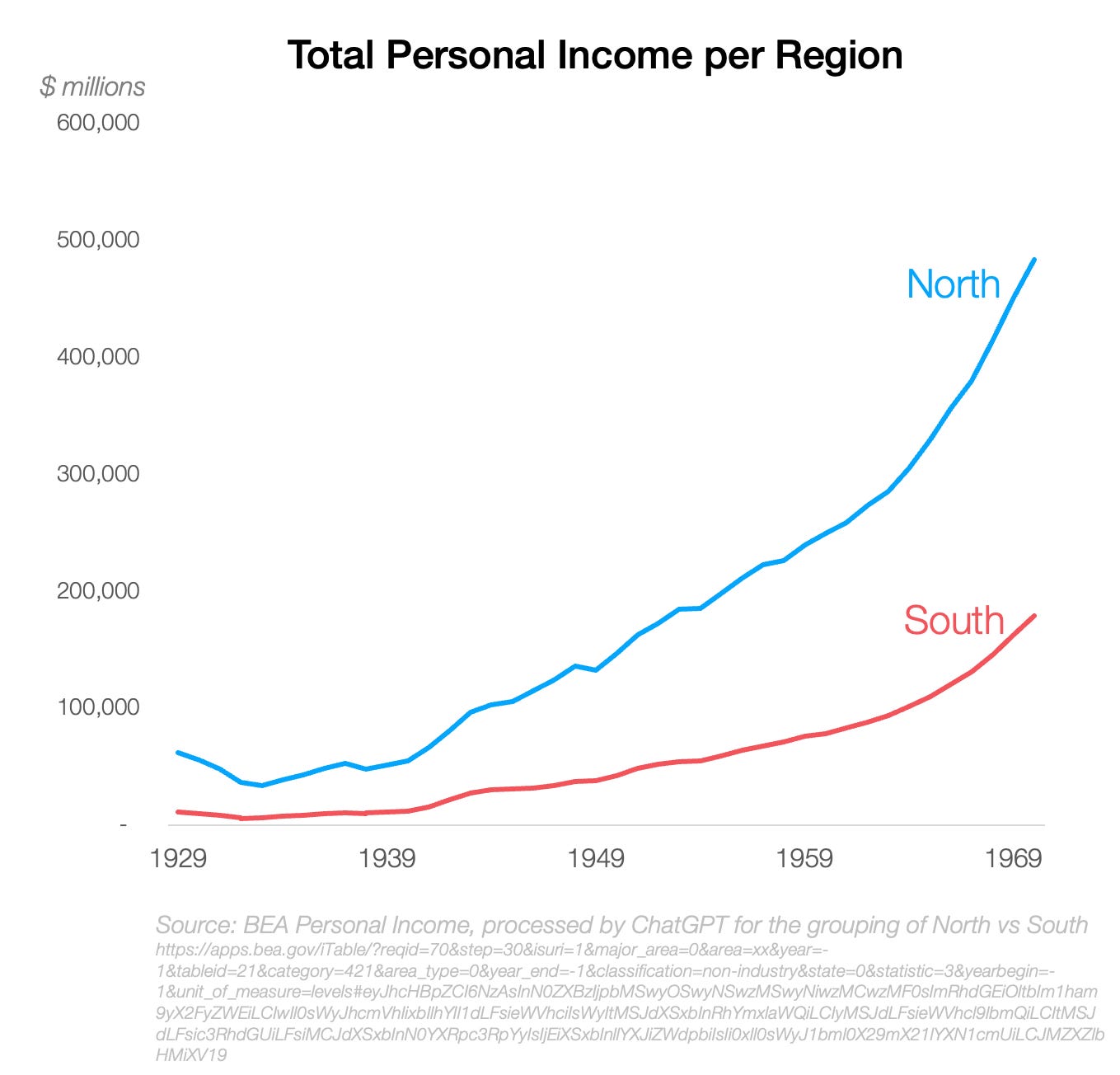Why the US South Is Poorer than the North, and Why This Is Now Changing
160 years after the end of the Civil War, the US South is more poor, sick, uneducated, mentally distressed, crime-prone, incarcerated, unemployed, religious, socially disconnected… Why? Is it a consequence of the Civil War, or something else?
In the first article in this series, we saw how climate caused the US Civil War. In the second, how climate also meant the North was more developed, setting it up to it to win the war. We are still experiencing the consequences of that clash today.
The Financial Legacy of the Climate Civil War
The Legacy of the Pre-War Era
For decades, the North spent its capital building railroads, trains, canals, ships, machines, cities, industries… It automated farm work, which allowed laborers to leave the farm and go to the city, where they worked in industries and benefited from cities’ agglomeration effects: Indeed, cities generate more money per person than farmland.
Meanwhile, the South invested all that capital in buying slaves.1
From Climate Predetermined the Outcome of the US Civil War:
40% of Southern wealth was locked in slaves around 1860, and their value exceeded the invested value of all US railroads, factories, and banks combined!
So, very early on, the North and South diverged: The North developed an industrialized economy, while the South went down the path of a resource extraction economy (extracting value from slaves). A bit like a European vs a Caribbean economy. These trajectories take incredible amounts of time to curb, which is one reason why nearly every European country today is richer than nearly every Caribbean country.
The Legacy of the Actual Civil War
Then, the War tore down the South, destroying what little industry it had. Between government spending, physical destruction, loss of human capital, decline in consumption, emancipation, and the effect on cotton prices, the Civil War was over 4x more destructive for the South than the North.
Once it ended, all the capital locked into slaves vanished. Of course this was the right outcome: In effect, it meant ex-slaves would no longer be abused as much, and that they had to be paid fair wages. Financially though, it meant that the upfront, fixed capital to secure years of practically unpaid work2 had vanished, and instead, workers had to be paid a monthly, variable amount.
This also destroyed the profits of Southern plantations. Many became unprofitable and closed. This was beneficial in the long term, because more productive enterprises could take over the worst ones. But in the short term, it meant a financial shock for the South.
When we looked at Asia’s development, we saw that the first step was always land reform, so that farmers owned their land and the fruit of their work. This usually meant that the winners of the war obliterated the incumbent establishment: This happened in Japan, South Korea, and Taiwan. Alas, the plan to allocate land to freed slaves in the US South was reversed after Lincoln was shot and Andrew Johnson became US President.
Instead, sharecropping appeared: White plantation owners still owned most of the land, which laborers would farm in exchange for a share of the crop. The drawback was that, between the land, the fertilizer, the seeds, the machinery, and all other things laborers needed, they ended up keeping very little of the fruits of their work. One of the reasons was that they didn’t know the system well, so plantation owners would take advantage of them and keep most of the benefits. And the natural trend of land ownership is toward more concentration anyway, since after every bad harvest, small landowners would have to sell their land to bigger owners that had more of a buffer. In effect, all this maintained the former slaveowners’ rentier status.3
This was not the only way this aristocracy of landowners was maintained: By disenfranchising former slaves (and poor Whites), the Southern White Elite prevented them from voting, so it controlled the politics of the US South for decades after the Civil War. This control turned the system to their advantage. For example:
Prisoners (mostly Black) were de facto slaves, used as plantation workers.
Anti-enticement laws prevented laborers from finding the best employer.
The controlling Elite kept taxes low (they would have been the ones taxed) and thus didn’t invest in infrastructure for the region.
Jim Crow Laws maintained segregation in the South, making access to services like healthcare or education nearly impossible for Blacks.
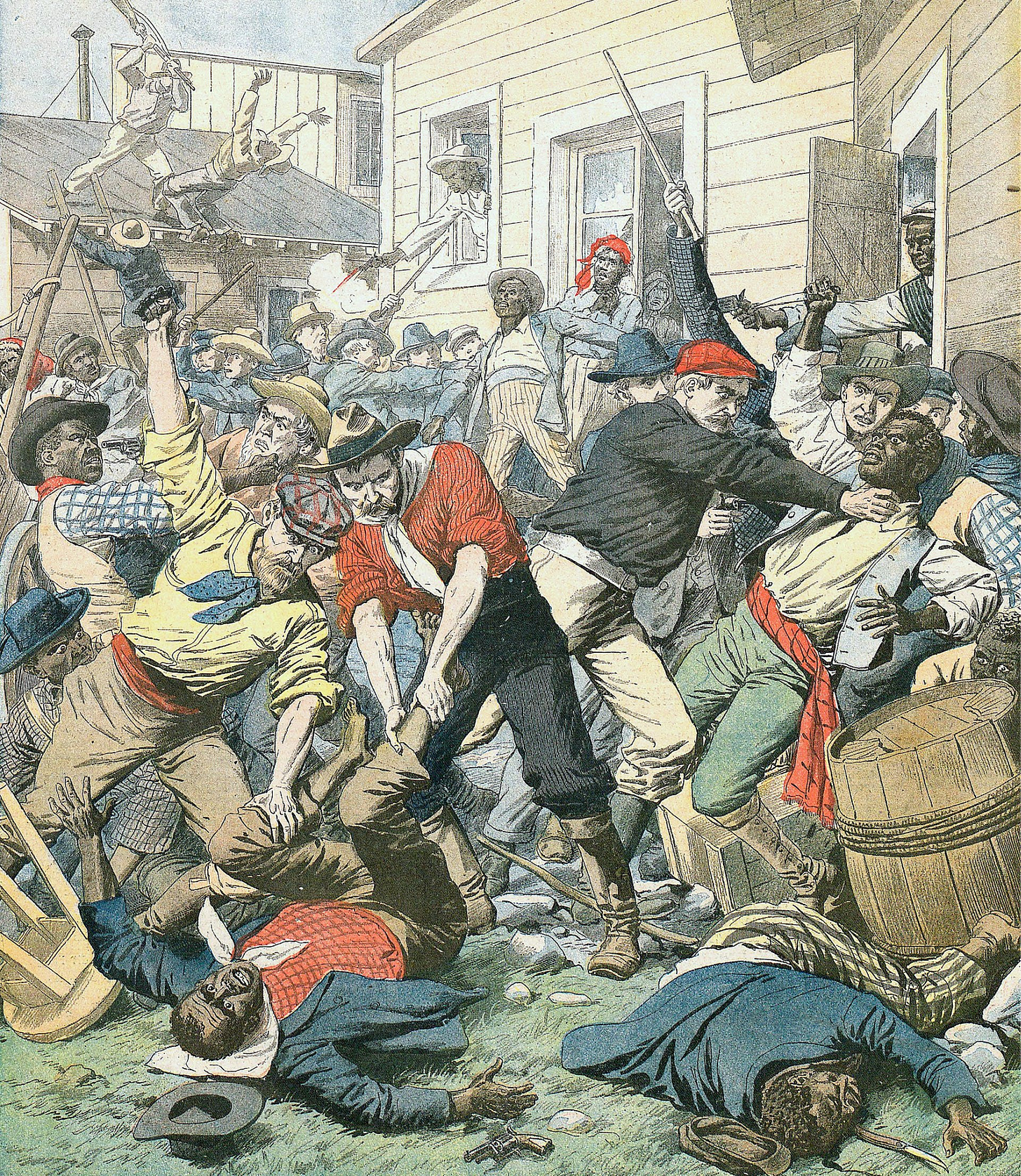
Unsurprisingly, Blacks eventually decided to leave.
The Great Migration
Most Blacks remained in the South after the Civil War, as they didn’t have many options outside it, nor connections or savings to get them out. This changed in the early 20th century.
WW1 was especially beneficial for Blacks in that it offered incredible professional opportunities:
Lots of Northern workers had to support the war effort, through both the war industries and military service in Europe.
European immigration dropped by 75% between 1914 and 1915.
Wages in the North could be 2x those in the South, so Blacks moved there en masse.
The Great Migration started around 1910 and lasted until the 1970s.
The result is that the Black share of population in the South halved!
This had several effects on the respective economies of North and South:
The South’s economy shrunk proportionately to the number of Black people it lost.
The North’s economy benefited from more workers.
Most newcomers went to cities, where they were more productive than on farmland, thus further enriching the local economy.
So now, the South suffered, on top of everything else, a loss of population and workers. And as a result, wages had to rise to attract other workers, further compressing the profits of local companies and causing inflation.
Of course, we should add to all these problems the endemic malaria, yellow fever, and hookworm we discussed in Climate Caused the US Civil War.
The result of all these factors was that the South’s economy stayed weak and small for decades after the Civil War.
In summary, climate caused the economic divergence of North vs South, it caused the Civil War, it made the South lose the War, and for a century afterwards, the South was unable to reverse the resulting economic depression. Luckily, over the last few decades, it has.


